JMW Turner (1775-1851), an English artist, is widely recognized for his vibrant and realistic oil and watercolor paintings in the artistic genre of Romanticism. Turner’s unique style and innovative techniques influenced generations of artists, making him a prominent figure in the history of art. Turner isn’t regarded as an abstract painter because the art world dates the birth of abstract painting to around 1900. Surprisingly, he experimented with abstraction of his subjects. In this post, we look at five of Turner’s paintings from 1834-1845 that are abstract or semi-abstract. As we’ll see, JMW Turner was actually a pioneer of abstract painting.
The Burning of the Houses of Parliament: an Abstract Painting of Fire and Smoke
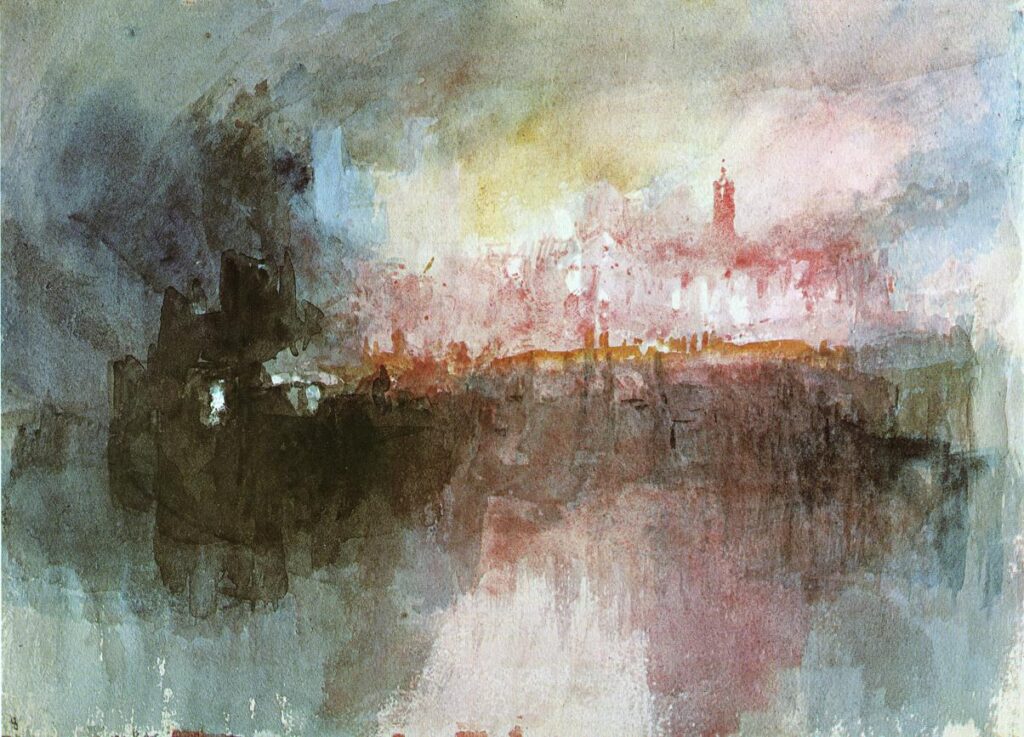
In 1834, Turner watched the Burning of the Houses of Parliament as a fierce fire raged, destroying most of the building. In this painting, fire and billowing smoke painted in red, black, and muted blues engulfs the recognizable Parliament buildings in the background. The event affected him deeply, and he later painted several other works depicting this catastrophe.
Rockets and Blue Lights (Close at Hand) to Warn Steamboats of Shoal Water: a Semi-Abstract Painting of Form and Shape
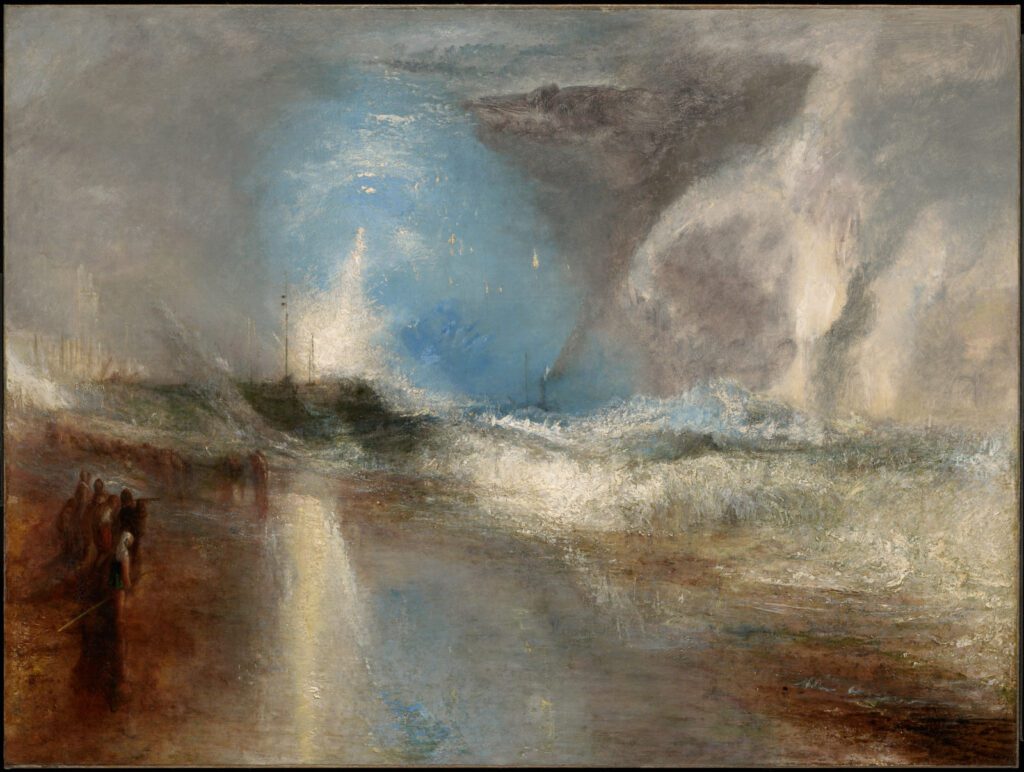
In Rockets and Blue Lights (Close at Hand) to Warn Steamboats of Shoal Water, Turner uses bold brushstrokes depicting a town by the sea battered by huge waves. Flares light up the sky warning ships of shallow water. Other than the loosely defined forms of people and ship masts, the piece is an abstract pictorial representation of the raging forces of nature.
Snow Storm – Steamboat off a Harbour’s Mouth: the Forces of Nature in Abstract Painting
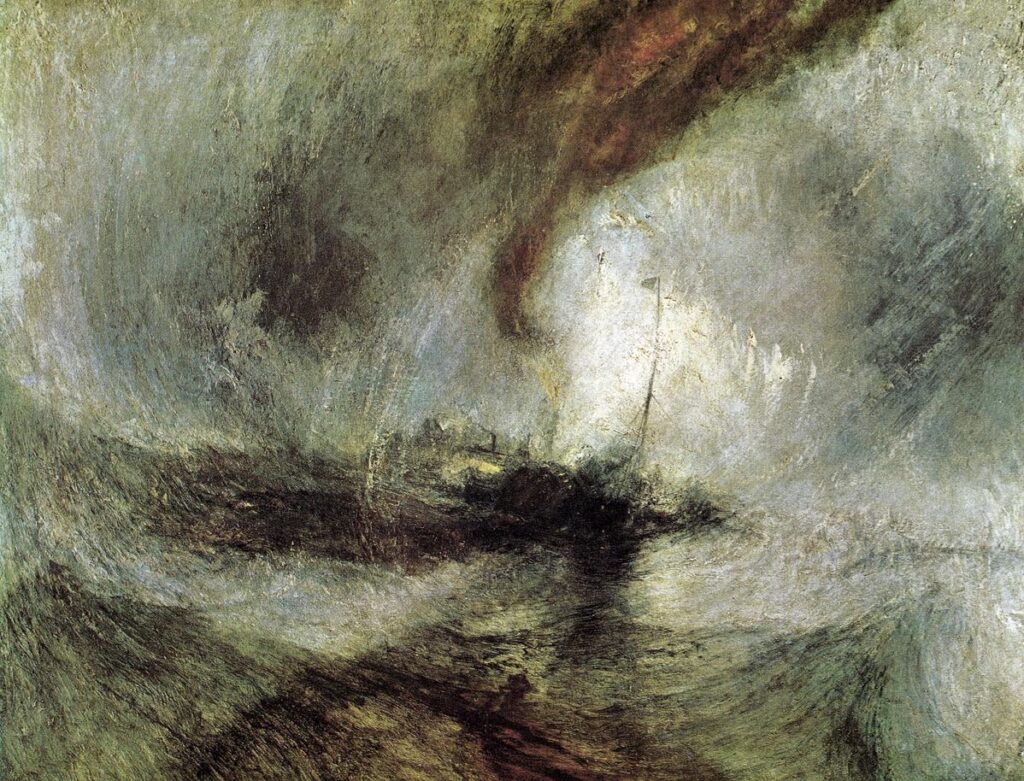
The painting, Snow Storm – Steamboat off a Harbour’s Mouth, shows a steamboat caught in a blizzard. Looking at Turner’s wild, swirling brushstrokes vividly show what it’s like being caught in this tempest. The Tate Museum records Turner’s response to the public ridicule of his painting, the very goal of abstract artist:
‘I did not paint it to be understood, but… to show what such a scene was like.’
Norham Castle, Sunrise: Ethereal Abstraction of Light
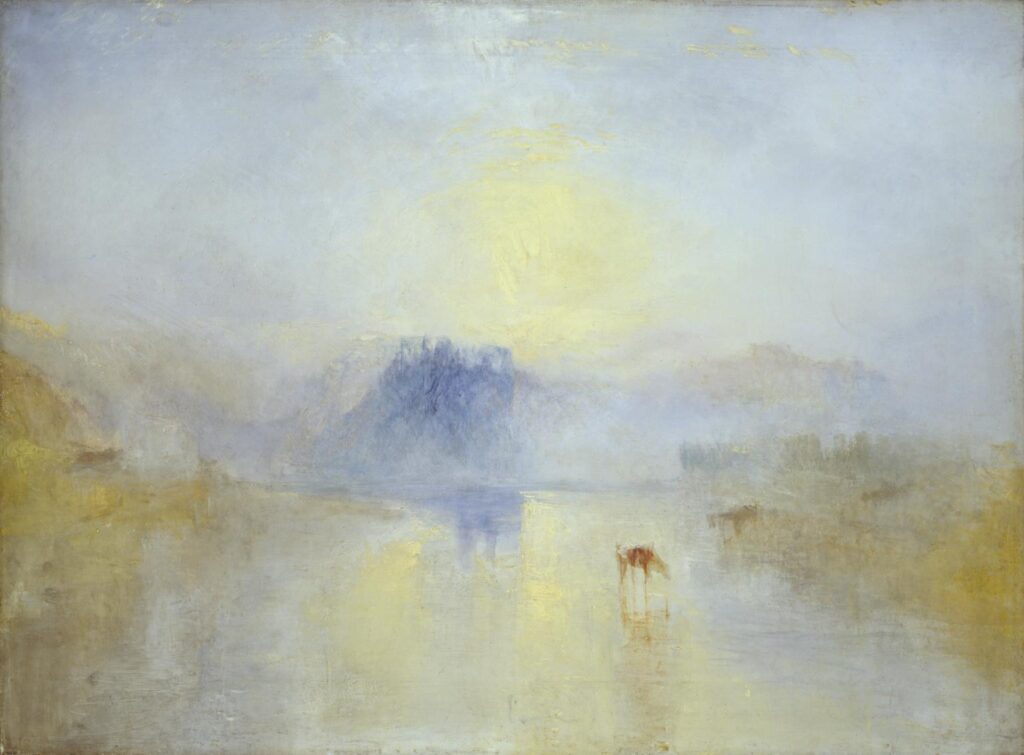
These castle ruins near the border with Scotland captivates Turner and he visits the area several times. With each visit, a new painting unfolded. A barely defined blue mass in the distance, bathed in sunlight, defines the castle. This painting successfully transmits the warm ethereal feeling of sunlight. Turner’s color palette is a wonderful example of muted complementary colors (blue and orange) creating a calm, peaceful scene. Although complementary colors typically evoke emotions of energy and excitement, they also create a tranquil feeling when muted. For further reading, visit the post Calming Complementary Colors in Art.
Sun Setting over a Lake: Intense Abstraction of Light
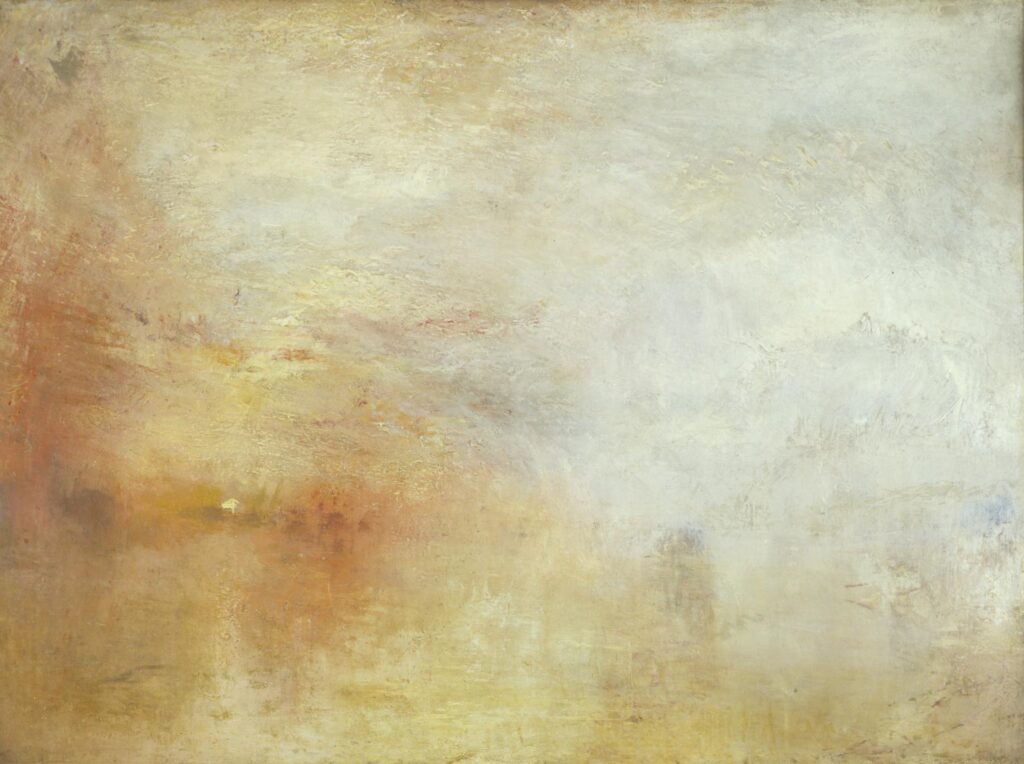
In Sun Setting over a Lake, Turner experiments with the abstract representation of light even further. The subject may be Lake Lucerne, one of his favorite destinations. Here is a scene with undefined form. Warm oranges and yellows dominate the canvas as the sun sets. Clearly, Turner is not painting a subject, but a feeling.
JMW Turner’s Legacy to Abstract Painting
Turner’s abstract paintings showcase a unique blend of vibrant colors and fluid forms. His revolutionary approach to capturing light and movement paved the way for modern abstract painting. Turner’s ability to evoke emotions and create a sense of atmosphere through his abstract compositions continues to inspire artists today.
JMW Turner images used with Public Domain and Creative Commons Licenses.
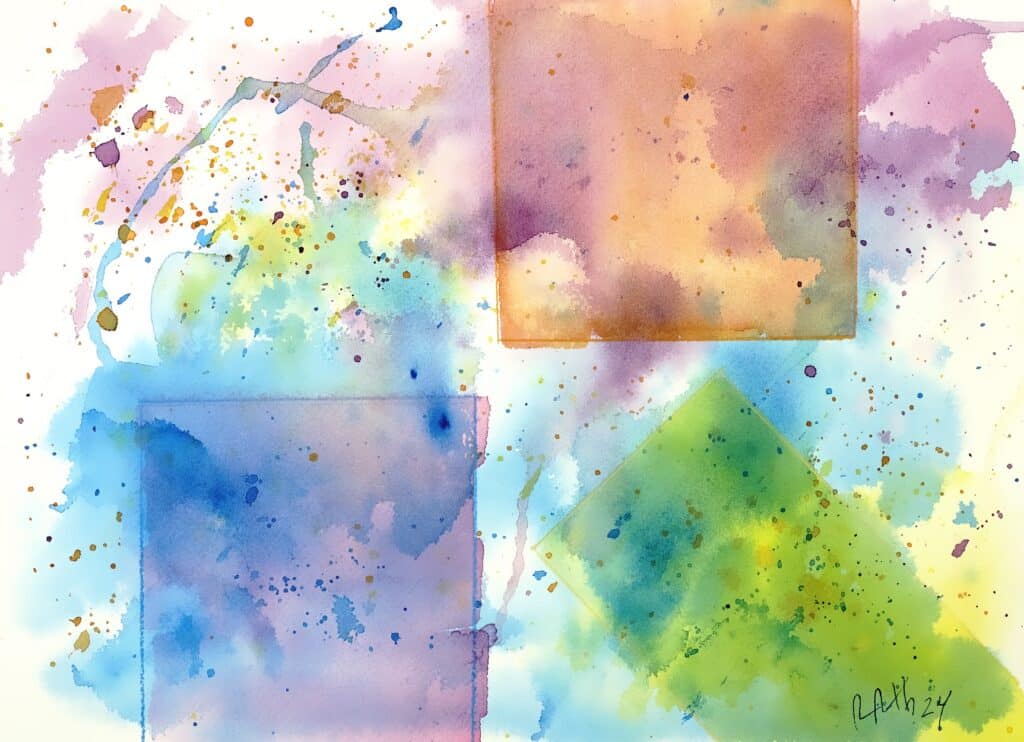
Discover more from Rhonda Roth Art
Subscribe to get the latest posts sent to your email.